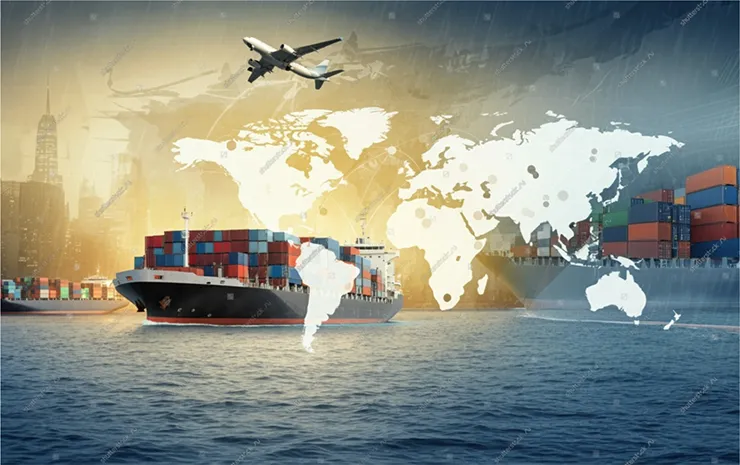About Geoeconomics
Whereas geopolitics examines the influence of geography on international relations, geoeconomics is a framework that integrates geopolitical analysis with international economics. In short, it analyzes how states pursue their geopolitical objectives via economic means.
The Approach of Geoeconomics

The utility of the geoeconomic approach stems from its focus on how economic power is wielded in international competition, and the economic impact of such confrontations. In the post-Cold War era, globalization led international economics and geopolitics to become increasingly interconnected. But more and more countries are pursuing what is commonly referred to as the “weaponization of the economy”—using economic interdependence as a tool to advance their national interests.
This trend runs counter to the idea that international politics and economics can be separated, either analytically or in practice. Moreover, it presents a challenge for businesses that have built their operations and supply chains around the assumption that market efficiency would be the principal factor in determining how globalized economic relations would develop.
In this environment, traditional forms of hard power, such as military and economic might, and soft power, including diplomatic and cultural influence, are not the only strategic capabilities that states deploy to advance their national interests. Geoeconomic analysis offers additional insight by considering two others:
• Strategic autonomy: a nation’s ability to implement its policies independent from external economic influence;
• Strategic indispensability: the ability of a nation to become essential to other countries' economies, thereby gaining influence over them.
Why is Geoeconomics Important Now?

Until recently, geopolitical risks were largely viewed as the concern of governments and militaries. However, recent events such as Russia’s invasion of Ukraine, the U.S.-China rivalry, and the Israeli-Palestinian conflict have shown how such risks directly impact private companies and individuals. These conflicts affect the economy in tangible ways, including through price hikes, supply chain disruptions, and threats to critical infrastructure that support daily life.
But these are not always side effects. National governments, recognizing the links between economics and geopolitics, are now more willing to use economic means to obtain leverage in international disputes. This means that the lines between politics and economics, and between the public and private sectors, have been blurred. For governments as well as international businesses, the current strategic environment cannot be fully understood without a combined geopolitical and economic perspective.
Geoeconomics in Practice
Although geopolitics may seem abstract, it is deeply embedded in our daily lives and economic activities. Below are some concrete examples:
 Energy
Energy
In response to Russia’s invasion of Ukraine, Western nations imposed sanctions, including bans on Russian energy imports. Russia, in turn, has retaliated by cutting or reducing natural gas exports to Europe, exposing the vulnerabilities of energy-dependent nations.
 Semiconductors
Semiconductors
Amid escalating U.S.-China strategic competition, semiconductors—which are vital to advanced technologies—have become a geoeconomic flashpoint. Concerned about the potential military use of advanced semiconductors by China, the U.S. has imposed export restrictions on both semiconductors and related manufacturing equipment. China has countered by restricting exports of rare metals essential to semiconductor production.
 Critical Resources
Critical Resources
To enhance supply chain resilience, Japan has designated 11 key items as critical national resources. These materials are essential to high-tech industries, and securing them is not just an economic concern—it is vital for maintaining strategic autonomy. Similar approaches have been initiated by the U.S. and EU.
 Artificial Intelligence (AI)
Artificial Intelligence (AI)
AI technology holds transformative potential for industries, infrastructure, and national security. As countries intensify competition to lead in AI, avoiding reliance on foreign technology has become a national priority. This competition is reshaping global demand for semiconductors, energy, and skilled human capital necessary for AI development.
The Future of Geoeconomics
With the return of the Trump administration, global uncertainty is on the rise—underscoring the urgent need for a deeper understanding of geoeconomics. But this is a field which involves not only national governments but also businesses and academic institutions, and all three approach geoeconomics from a different perspective.
The Institute of Geoeconomics will continue to expand its networks with global think tanks, and domestic and international actors in government, industry, and academia to bridge any gaps in order to advance research and disseminate insights. Our base in Tokyo is an ideal location for such an institute, since Japan has a unique perspective on geoeconomic issues. As a top tier economy and the only Asian nation in the G7, allied with the U.S., and with strong business links to China, Japan is situated in an environment where the impact of geoeconomic competition can be amplified.
Therefore, from advanced technology to international order, and from economic security to regional studies, the Institute of Geoeconomics aims to bring this Japan- based perspective to a global audience. As geoeconomics becomes more central to international affairs, we believe this perspective will only become more important.
Institute of Geoeconomics
As a private, independent think tank,
the IOG aspires to make significant global impact and become a hub for intellectual exchange in the Asia-Pacific region.
Follow Us


